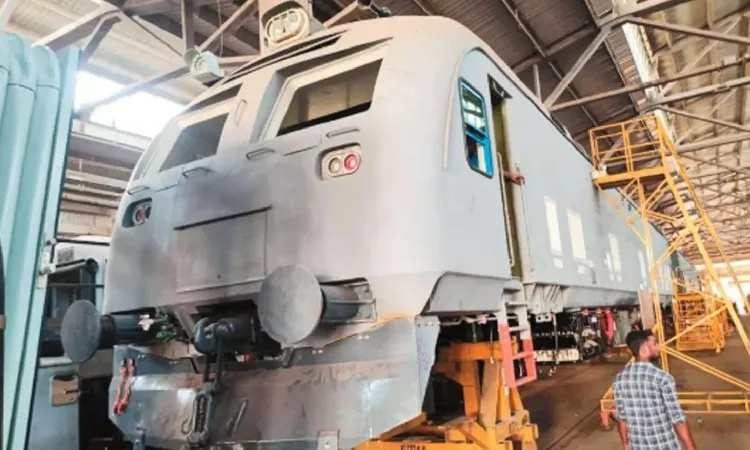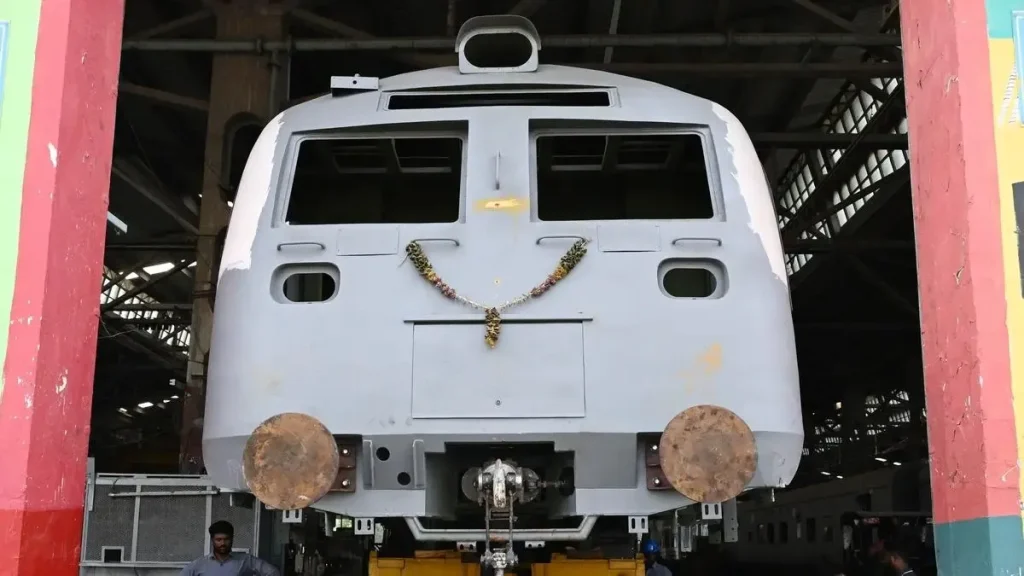India is gearing up for the launch of its first hydrogen fuel cell-powered train, a pioneering step in its railway evolution. Expected to roll out from the Integral Coach Factory (ICF) in Chennai, the train will likely be ready by April or May. The project is being executed by Hyderabad-based Medha Servo Drive Pvt., which is constructing the train at ICF’s Perambur premises. Northern Railways has placed the order for this cutting-edge technology.

A Significant Milestone for India’s Railway System
The cost of developing the hydrogen fuel cell train set is ₹118.24 crore for a 10-car formation. As part of a pilot project, the train will operate on the Jind–Sonipat section of Northern Railways. This innovative project involves converting a 1200 KW DEMU (Diesel Electric Multiple Unit) into a hydrogen fuel-cell-powered train that will produce zero emissions, marking a significant move toward cleaner transportation.
The project includes retrofitting a 1600 HP DEMU rake, comprising two distributed power control systems and eight trailer coaches, while also establishing a hydrogen fueling plant at Jind.
Delay in the Rollout but Optimism Remains
While initially slated for a March release, the rollout of the hydrogen fuel cell train has been delayed by a month or two. U Subba Rao, the General Manager of ICF, confirmed that the project is nearing completion and will likely launch soon. Despite this, Tamil Nadu’s government, through its investment promotion agency, expressed pride in the state’s role in manufacturing India’s first hydrogen-powered train. The state is becoming a hub for train component manufacturing, supported by a strong ecosystem of MSMEs and multinational companies.
Government’s Strategic Push for Hydrogen Technology
The Ministry of Railways announced in March 2023 that 35 hydrogen fuel-cell-based trains will be developed for heritage and hill routes across India as part of the 2023-24 budget, at a cost of ₹2,800 crore. Additionally, the development of hydrogen infrastructure for these routes has been allocated ₹600 crore, signaling a growing commitment to sustainable energy solutions in the country’s railway system.
Global Case Studies and India’s Adoption of Hydrogen Trains
Globally, the use of hydrogen-powered trains is gaining traction. Alstom’s Coradia iLint, one of the first hydrogen trains, successfully carried passengers in North America and has operated in regions such as Quebec. Alstom has also partnered with Saudi Arabia Railways to provide demonstrations of hydrogen-powered trains in Riyadh. Germany and China have already retrofitted hydrails, and India’s adoption of this technology is part of a global movement towards cleaner, more sustainable transportation.

Concerns About Hydrogen Train Viability
Despite the optimism, there are concerns about the practicalities of hydrogen-powered trains in India. Critics, such as Lalit Trivedi, former General Manager of East Central Railways, argue that hydrogen trains may not be the best solution for India. They suggest that the cost of creating hydrogen infrastructure and the inefficiency of the technology could prove financially disastrous. Instead, they advocate for direct use of renewable energy and continued electrification of the rail network as a more practical approach to decarbonization.
While the launch of India’s first hydrogen fuel cell train is a significant step forward, it remains to be seen whether the country’s railway system will fully embrace this technology in the long run. For now, the project marks a major milestone in India’s journey toward greener and more sustainable transportation solutions.
